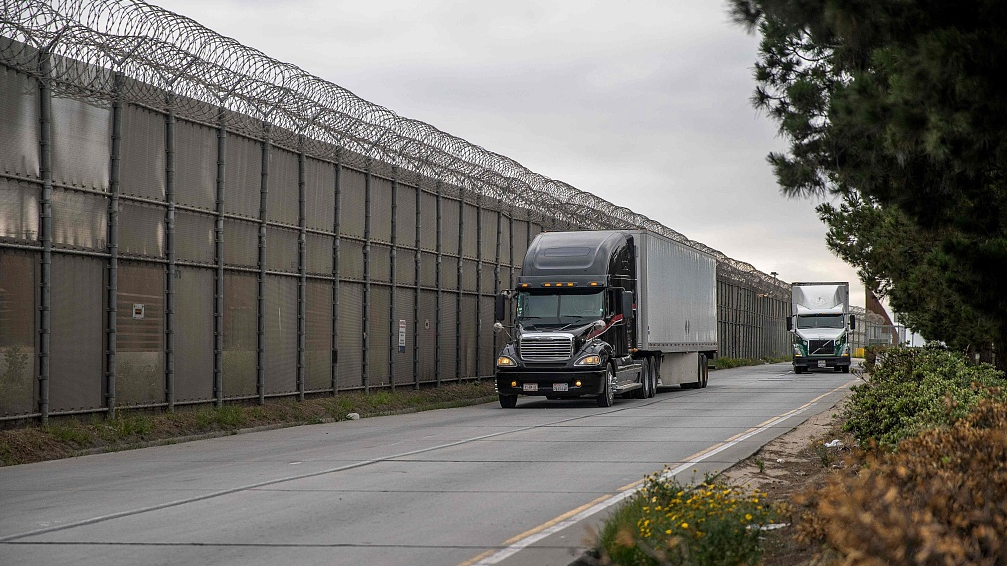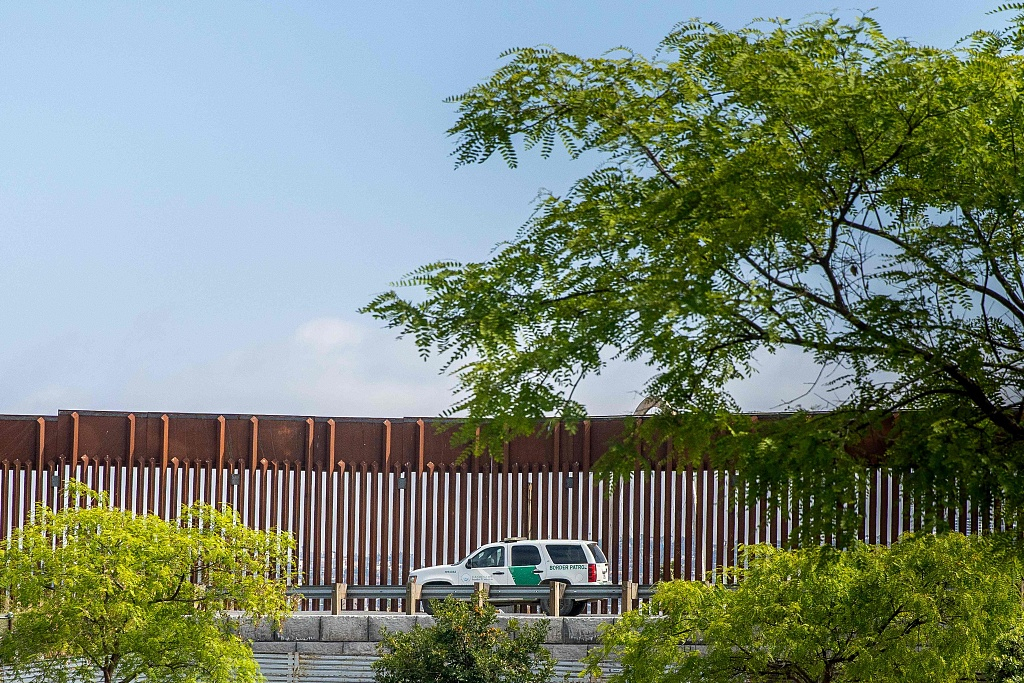
Opinion
13:37, 02-Jun-2019
Trump plays tariff ball with Mexico
Bobby Naderi

Editor's note: Bobby Naderi is a journalist, current affairs commentator, documentary filmmaker and member of the Writers' Guild of Great Britain. The article reflects the author's views, and not necessarily those of CGTN.
President Donald Trump continues to live up to his reputation as the "tariff man." He has picked up another absurd trade fight, this time with Mexico, until they deal with the issue of illegal immigration on the southern border.
Less than two weeks after he lifted tariffs on Mexican and Canadian steel and aluminum, Trump has used the International Emergency Economic Powers Act to slap a surprise tariff rate of five percent on all goods from Mexico starting June 10, including produce and cars. The new tariffs would be levied the first day of each month until they reach a maximum of 25 percent.
Trump says his widely opposed tariffs are in retaliation to the influx of illegal immigrants and refugees fleeing poverty and violence into the U.S. from Mexico. He claims trade policy and border security are not separate issues.
The new threat of levies has caught Mexico – one of the U.S.' closest and largest trade partners – completely off guard. It has rattled the markets and shaken investor confidence the world over. It would soon affect working American families as well.
In addition to bi-partisan opposition in the Senate and statements from many lawmakers, the U.S. Chamber of Commerce has said the proposed tariffs would not solve the border crisis. The National Retail Federation also says companies will cover the tariffs by raising prices, which means everyday Americans will pay the price.
They are all pressing Trump to back down. After all, Mexico cannot reduce the number of unauthorized immigrants into the U.S. without breaking the human rights law. The border is 1,954 miles long, and even if Trump builds his beloved wall, it would only cover less than 1,000 miles of it, which means, Central American migrants will still continue to travel through the Mexican territory to the U.S.
Worse still, the proposed 25-percent tariffs would lower growth and force the Mexican government to devalue the peso to absorb their impacts. This would push up prices, especially if Mexico decides to retaliate, throw the Mexican economy under the bus, and end up producing more immigrants and refugees.

A U.S. Customs and Border patrol car drives past the U.S.-Mexico border fence in San Ysidro, California, May 31, 2019. /VCG Photo
A U.S. Customs and Border patrol car drives past the U.S.-Mexico border fence in San Ysidro, California, May 31, 2019. /VCG Photo
The irony is that controlling immigration and steady economic growth were Trump's biggest campaign promises. His decision to flout the World Trade Organization (WTO) rules would hurt working class families. If there is a sudden increase in the number of illegal immigrants showing up at the border, it will deal a major blow to his reelection chances in 2020.
Beyond the election cost of the tariffs, Trump's actions could also disrupt supply chains that key industries, including autos and technologies that are based in Mexico, rely on. If so, it would worsen the economic impact, and turn into a wider regional trade conflict.
As such, Trump's gamble on tariffs and his cruelty toward immigrants in pursuit of political scores is not good for the U.S. economy and its international human rights record. The arbitrary use of import tariffs is crazy and undeniably self-destructive. It could even sabotage his revised trade pact with Canada and Mexico (USMCA) to replace the North American Free Trade Agreement (NAFTA).
There are no puzzles here. Tariffs are a bizarre way to deal with the problem of illegal immigrants and refugees. Trump cannot solve the problem of illegal immigration with tariff and coercion. The U.S. should help its southern ally and other Central American countries through investments that will create jobs and solve the root cause of illegal immigration.
In the face of all this uncertainty, and if all bets are off, no one can say for sure what would be the impacts on the prices and the profit margins. The integrated trade is such that the Mexicans have products that go into Canada and then go into the U.S.
It's important to note that Trump's use of emergency power is illegal under the WTO rules. It's likely to draw a challenge, because when it comes to tariffs, the Trump administration is really on an island of its own. They have thrown everything in chaos, just at a time when some order and certainty was returning to this fight after lifting tariffs on aluminum and steel.
Taken together, it is one thing to excuse tariff war and it is quite another to blame refugees and immigrants for America's growing economic, political and social woes. This is not a new thought though. The growing trend of xenophobia as well as the wretchedness and despair of this great mass of humanity, a tiny fraction of which has turned up on America's doorsteps, are too great to ignore. Surely the U.S. government must in some way be responsible for the mess.
The U.S. is responsible for its troubles. It should give immigrants and refugees dignity and hope under international humanitarian law. Merely by being at the border, they don't challenge the U.S. national security. Enlightened wisdom says the Trump administration should drop this new dehumanization process and increase feelings of solidarity.
(If you want to contribute and have specific expertise, please contact us at opinions@cgtn.com.)

SITEMAP
Copyright © 2018 CGTN. Beijing ICP prepared NO.16065310-3
Copyright © 2018 CGTN. Beijing ICP prepared NO.16065310-3